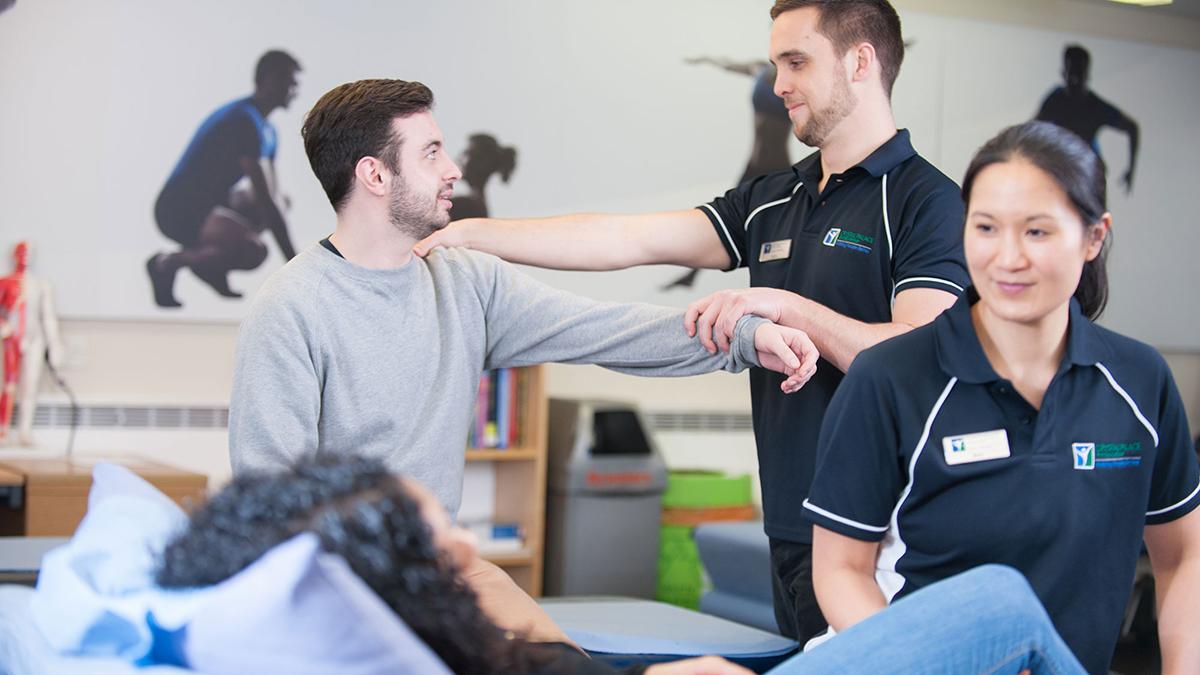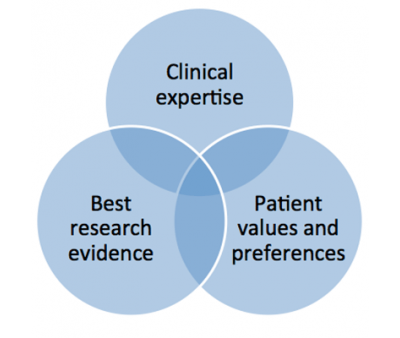There is much debate about what EBP is and whether the traditional model of EBP needs updating.

Useful definitions
The term evidence-based practice (EBP) has developed from the term evidence-based medicine (EBM) which was introduced into medical literature in 1991 [1].
A commonly used definition of EBM is:
'the conscientious, explicit, and judicious use of current best evidence in making decisions about the care of individual patients' [2].
In 2005, an EBM international working group introduced the term evidence-based practice (EBP) and published ‘the Sicily statement on evidence-based practice’ which includes the following definition:
'Evidence-Based Practice (EBP) requires that decisions about health care are based on the best available, current, valid and relevant evidence. These decisions should be made by those receiving care, informed by the tacit and explicit knowledge of those providing care, within the context of available resources'[3].

Both definitions suggest that EBP requires the integration of best research evidence, individual clinical expertise and patient choice.
The diagram demonstrates the importance of different sources of evidence, from research, clinical practice and patients. For each individual patient and every clinical decision, the relative contribution of each evidence source (size of circle) may vary considerably.
There is much debate about what EBP is and whether the traditional model of EBP needs updating.
Further resources
Physiotherapy UK 2015 debate on research evidence
The motion was “this house believes that in the absence of research evidence an intervention should not be used”
There were two speakers for the motion, Professor Sallie Lamb, University of Oxford and Professor Rob de Bie, Maastricht University; and two speakers against the motion, Associate Professor Roger Kerry, University of Nottingham and Professor Michael Loughlin, Manchester Metropolitan University.
The ‘againsts’ won the debate.
Further reflections on the debate
- This house believes that in the absence of research evidence an intervention should not be used - Roger Kerry's blog
- Evidence-based medicine: why are we even debating it? - Reflections on the Physiotherapy UK debate by Carley King
- What is evidence-based physiotherapy? - Veras M et al (2015), Physiotherapy Canada 68(2)95-96
- Is it time to end the tyranny of evidence-based practice? - Dave Nicholls' blog
Page references
- Guyatt G Evidence-based medicine ACP J Club 1991 A-16:114
- Sackett DL et al. 1996 Evidence based medicine: what it is and what it isn’t. BMJ 1996; 312: 71-2
- Dawes M, Summerskill W, Glasziou P et al 2005 Sicily statement on evidence-based practice BMC Medical Education 5(1) 1-7
